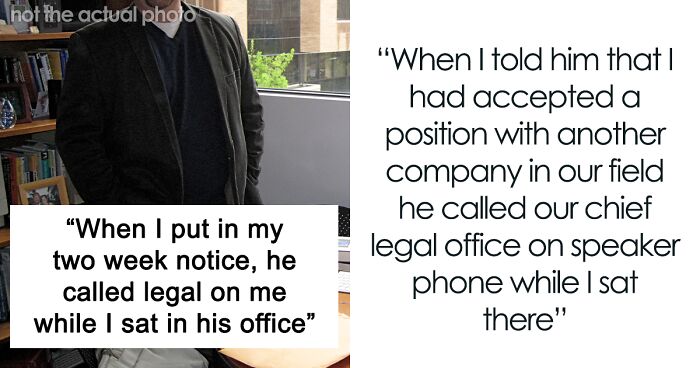
Boss Tries To Scare Off Employee For Quitting For A Better Job, Worker’s Soon-To-Be CEO Steps In And Threatens The Boss
If there’s something that most people — at least we, dear 99 percenters — have in common, it must be horrible bosses. Screaming, lazy or immoral — we barely can stand them. Which explains why nearly half of employees quit because of this very same reason. But if not for them, those soul-draining, raise-refusing creatures we take orders from — where’d we be today?
Think about it: they might not wish the very best for us, they might not even know our real names, but they drive us crazy so that we can move on. As Dave Carpenter, founder of Carpendiem Inc., writes in his ‘Ode To The Bad Boss‘: “I’d like to sincerely thank all of the terrible bosses I’ve worked for over the years. Without you, how would I have ever started my own business?”
We don’t doubt this person shares this sentiment. At least, somewhere deep down. As he shared in his mind-boggling r/antiwork story, the final straw that made him realize it was time to move on was his boss’ selfishness. After all this employee had done for the company, after all the profit that he helped to make, all he received for a Christmas bonus was a lousy $25 gift card. The best part? The closest cinema he could use it for was 1.5 hours away… Gee, thanks, Mr. Boss!
Nothing describes what a selfish prick your boss is better than a lousy Christmas gift
Naturally, as one would do under the same circumstances, this employee had found a better job offer. And boy, how quickly things got out of hand then moment his Scrooge-y boss heard the words “I’ve accepted another job.” Threats using legal action, cold calling, intimidation — just some of the things this brave worker had to go through just to be released from his ‘here’s-a-$25-AMC-card-because-I-appreciate-you’ boss’ captivity.
And yet, if not for this terrible boss, he wouldn’t have jumped the ship to be where he is today. And people say lousy Christmas gifts shouldn’t exist…
Psst! If you’re hungry for more pathetic boss stories, we picked this and this just for you.
Image credits: Alan Levine (not the actual photo)
Or them taking legal action against you simply for moving on in life, as this story shows
Image credits: TheOldAngryAnus
Based on people’s comments, pathetic bosses like this are not entirely uncommon
There’s a saying people quit bosses, not their jobs. As it may be, not being respected or being deprived of the credit that you deserve by your schmuck-ey superiors are some of the most popular reasons for waving goodbye to your workplace.
Oftentimes, bosses and managers show their true faces after something doesn’t go their way (read: complaining, asking for a promotion or being moved a few cubicles away from Jerry the coworker). Everyone has a right to be petrified of speaking with their superior who’s directly linked to your well-being, right? (Turns out, bosses and company leaders are equally afraid of doing so, studies have shown) But what does it tell you about the trust between you and your boss — the main lubricant for organizational effectiveness?
As Kristie Rogers, Marquette University’s Assistant Professor with a Ph.D. whose main research subject is respect at work, puts it — there are two types of respect employees are looking for from their superiors. ‘Owed’ and ‘Earned’. The difference between the two is that the former comes as a universal reward, while the latter must be earned.
Of course, both owed and earned respect from your superiors are crucial for maximum efficiency in the workplace. The tricky part is balancing it out: if all of your colleagues feel respected and great about their productivity or service they’re providing, getting a ‘Great job, buddy’ from your manager won’t feel like that big of a deal. Single out a few go-getters and the relationship you had with your staff will start crumbling like a Jenga tower.
Still, nothing tops a boss who shamelessly gifts their highest-performing employees $25 gift vouchers. Believe it or not, 48% of workers who feel disrespected by their superiors will deliberately reduce their effort, one study claims. On top of that, people who will be the most affected by half-hearted service will most likely end up being your clientele.
Who cares if you have anyone trained - that’s their problem - not yours!
I have two questions... Since when could you be fired for looking for another job, and why TF would you take the care and effort to train your own replacement before leaving that hellhole?!
In the U.S. , most jobs are considered "at will", meaning that you can be fired for any reason that isn't discrimitory ( the law hasn't caught up with some kinds of discrimination), and you can quit at any time. Second question, many times, your old job will have to be a reference for jobs in the future, sometimes going back 3 jobs. So, to get a not crappy reference, you have to "play nice"( give 2 weeks notice, train someone to take over your duties) Now, if you don't give AF, you can say "F it all" and walk right out. BUT, they may "burn a bridge" and make things harder on yourself. It sucks but thats what we have.
Load More Replies...You should never become complacent in any job. If you have a chance to better yourself, go for it! Companies that truly care for their employees will be sad to see them go but happy for the person. In this post, it seems the only reason for the company wanting to employees to stay is to continue to pad the pockets of the the boss.
Who cares if you have anyone trained - that’s their problem - not yours!
I have two questions... Since when could you be fired for looking for another job, and why TF would you take the care and effort to train your own replacement before leaving that hellhole?!
In the U.S. , most jobs are considered "at will", meaning that you can be fired for any reason that isn't discrimitory ( the law hasn't caught up with some kinds of discrimination), and you can quit at any time. Second question, many times, your old job will have to be a reference for jobs in the future, sometimes going back 3 jobs. So, to get a not crappy reference, you have to "play nice"( give 2 weeks notice, train someone to take over your duties) Now, if you don't give AF, you can say "F it all" and walk right out. BUT, they may "burn a bridge" and make things harder on yourself. It sucks but thats what we have.
Load More Replies...You should never become complacent in any job. If you have a chance to better yourself, go for it! Companies that truly care for their employees will be sad to see them go but happy for the person. In this post, it seems the only reason for the company wanting to employees to stay is to continue to pad the pockets of the the boss.



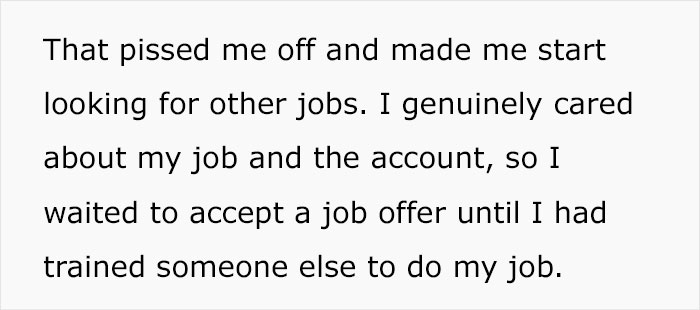
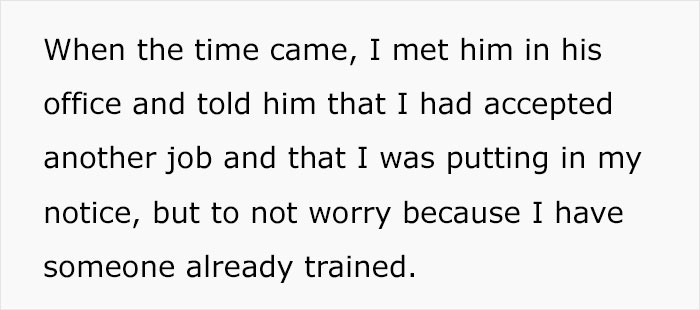
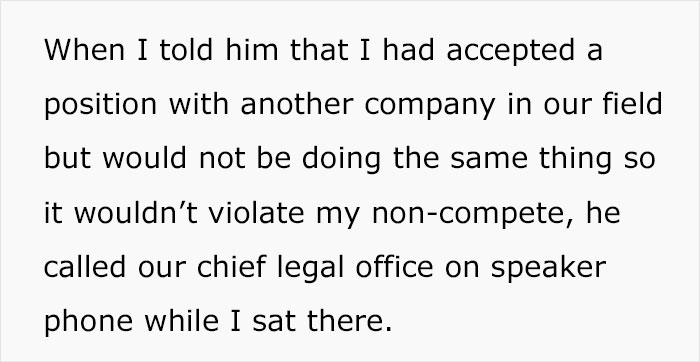
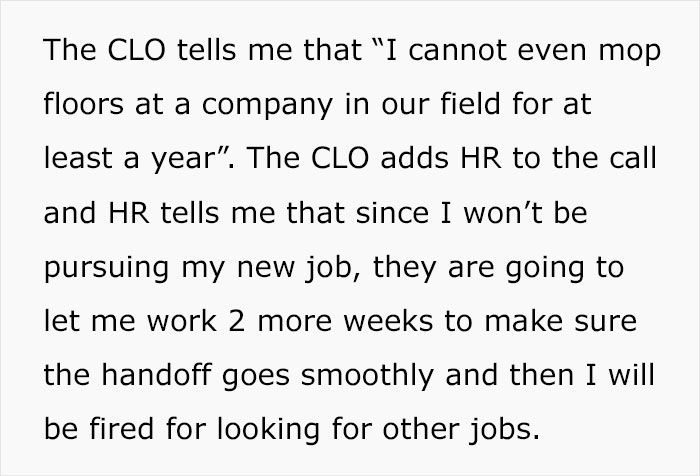
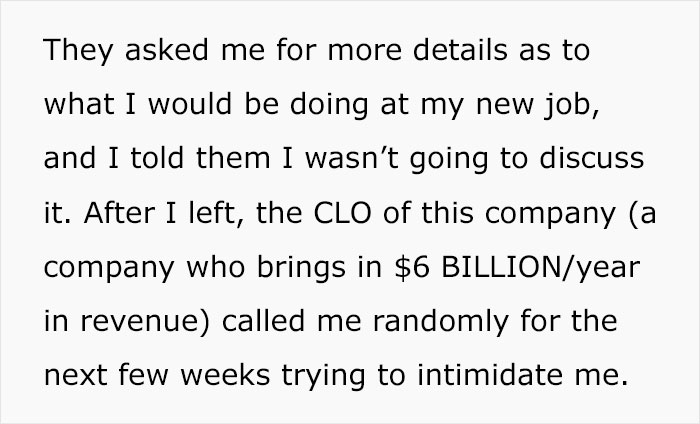
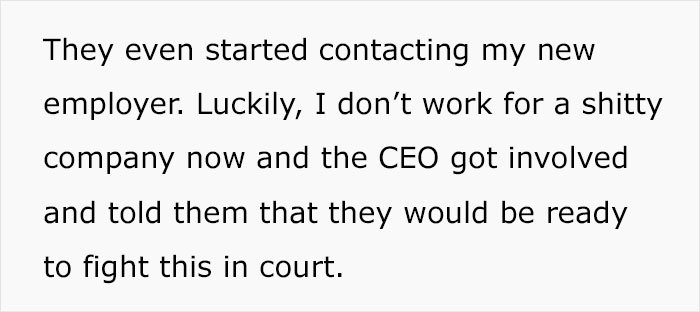
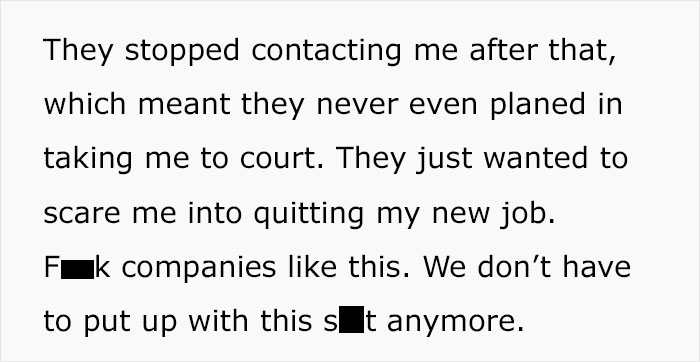
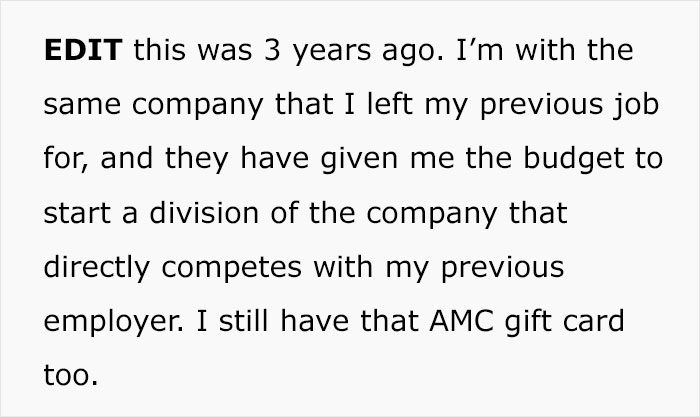
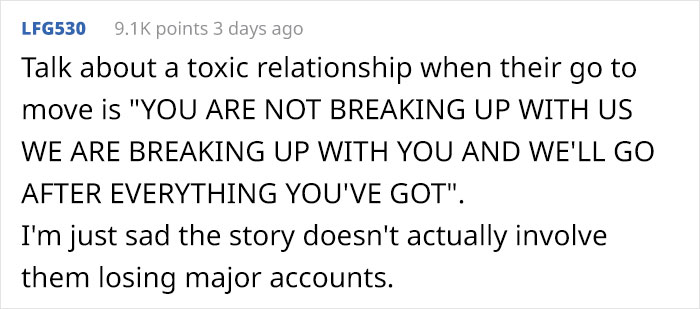
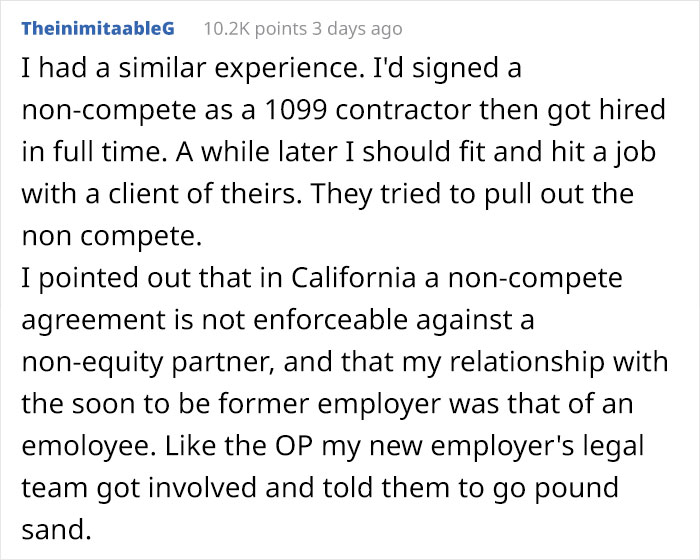


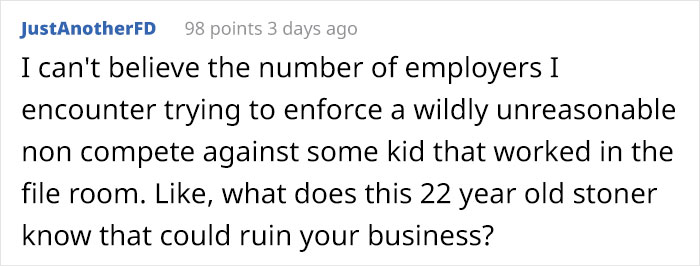
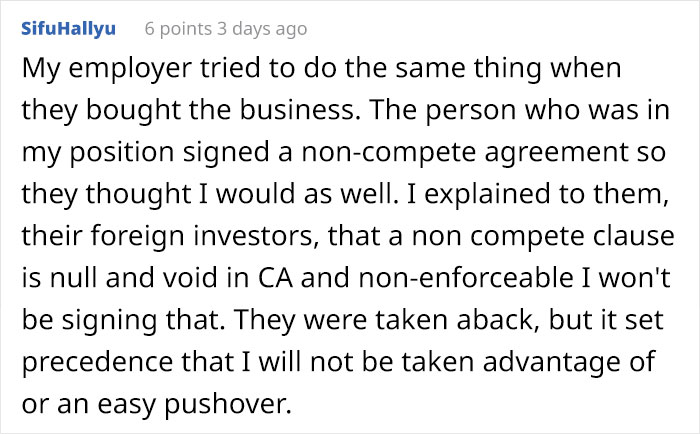
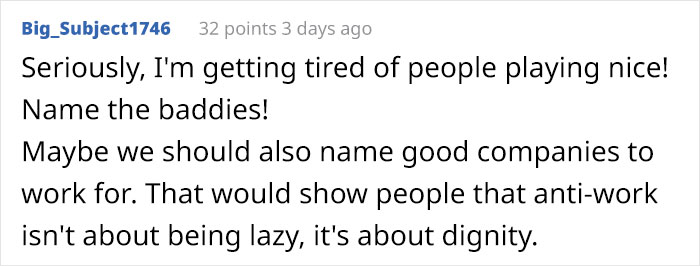
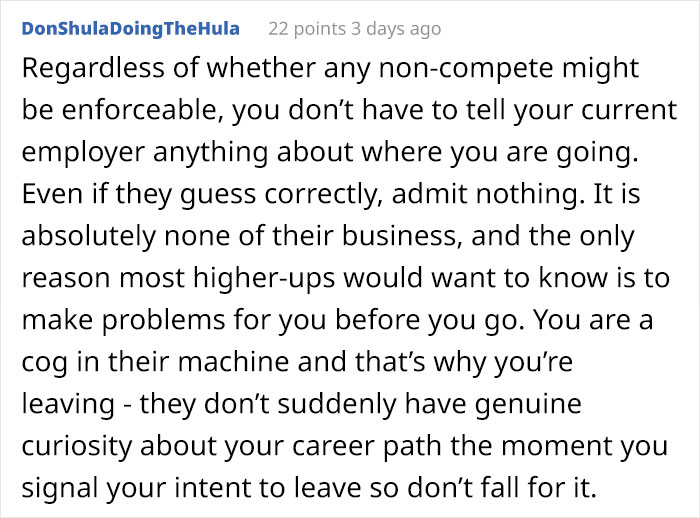
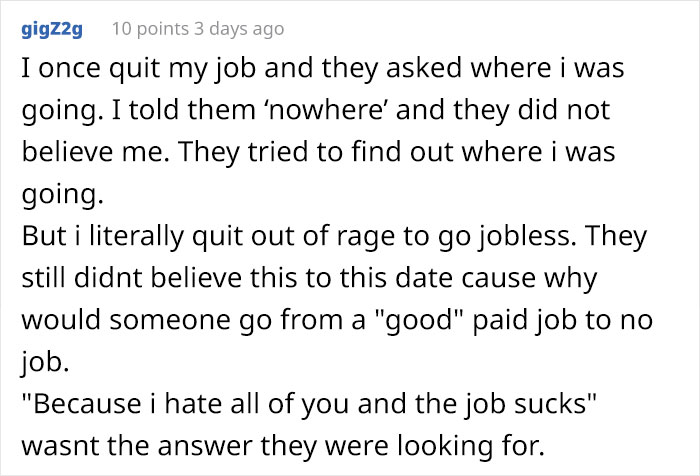




110
22